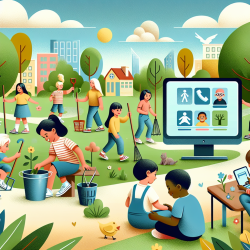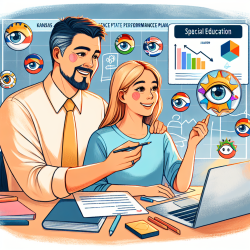Introduction
Intimate Partner Violence (IPV) remains a significant global concern, impacting individuals' physical and mental health. Professionals such as social workers, nurses, lawyers, and physicians are often the first point of contact for victims. However, traditional educational methods have often left these professionals inadequately prepared to respond effectively. The research article "A Scoping Review on the Use of Experiential Learning in Professional Education on Intimate Partner Violence" explores how experiential learning (EL) can be a powerful tool in bridging this educational gap.
Understanding Experiential Learning
Experiential Learning, or learning by doing, emphasizes active engagement and practical application of knowledge. It has been increasingly recognized as an effective educational strategy in professional education, particularly for complex and sensitive issues like IPV. The scoping review analyzed 61 studies and found that EL strategies, such as role play and standardized patient simulations, were frequently used to teach IPV competencies.
Key Findings
- Role Play and Standardized Patients: These were the most common EL methods, used in 39% and 36% of studies, respectively. They provide a practical, immersive experience that helps learners develop critical skills.
- Fidelity of EL: Both low and high fidelity simulations were effective, with no significant difference in outcomes. This suggests that educators can choose the level of realism that best fits their resources and objectives.
- Competency Development: The review highlighted the importance of developing knowledge, skills, and attitudes (KSA) competencies. These are essential for professionals to effectively address IPV in their practice.
- Intersectionality: Only 11% of studies considered intersectionality, highlighting a significant gap in addressing the diverse experiences of IPV victims. This underscores the need for more inclusive educational strategies.
Implications for Practitioners
For practitioners, incorporating EL into professional development can enhance their ability to respond to IPV effectively. By engaging in role play and simulations, practitioners can practice and refine their skills in a safe, controlled environment. This approach not only improves competency but also boosts confidence in handling real-world situations.
Encouraging Further Research
While the scoping review provides valuable insights, it also highlights areas needing further exploration. Future research should focus on integrating intersectionality into EL strategies to ensure a comprehensive understanding of IPV. Additionally, exploring cost-effective ways to implement high-fidelity simulations could make these valuable learning experiences more accessible.
Conclusion
Experiential learning offers a promising approach to enhancing IPV education for frontline professionals. By focusing on practical, immersive experiences, practitioners can develop the necessary skills to provide effective support to IPV victims. As educators and institutions continue to refine these strategies, the potential for improved outcomes in IPV response is significant.
To read the original research paper, please follow this link: A Scoping Review on the Use of Experiential Learning in Professional Education on Intimate Partner Violence.










